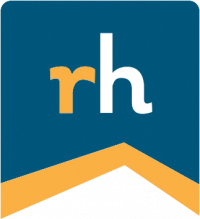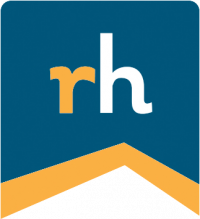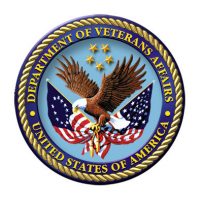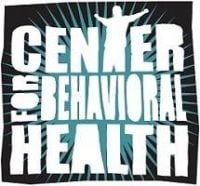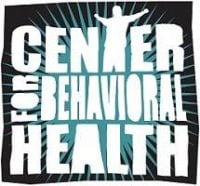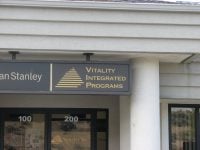STEP2 - Transitional House Residential
Drug Rehab Center in Reno, Nevada
STEP2 - Transitional House Residential is a leading addiction treatment facility located in Reno, Nevada that offers comprehensive programs tailored to the individual needs of each client, including group and individual counseling, cognitive behavioral therapy, relapse prevention, and the utilization of the 12-step model for recovery.
Multiple patients have reported STEP2 - Transitional House Residential as permanently closed.
Research other rehabs in Reno, Nevada, or get help finding an open facility.
About This Nevada Facility
STEP2 - Transitional House Residential is a highly-regarded addiction treatment facility located in Reno, Nevada. This comprehensive facility provides a safe and secure environment for those in need of recovery from alcohol, opioid addiction, substance abuse, and dual diagnosis. The 20 bed treatment center offers many levels of care ranging from inpatient, residential, to intensive outpatient and conventional outpatient care. Patients can also receive drug rehabilitation services and the opportunity to transition to a more independent living situation in the form of sober-living or half-way homes.
STEP2 - Transitional House Residential's experienced and certified staff specialize in delivering a unique and personalized approach to addiction and substance abuse recovery care. They are dedicated to helping patients achieve a successful and lasting recovery. The facility is licensed by the Nevada Division of Public and Behavioral Health and has earned accreditation from both the Commission on Accreditation of Rehabilitation Facilities (CARF) and The Joint Commission. Their evidence-based treatment methods are designed to provide the highest quality care and support to help individuals reach sobriety.
Genders
Ages
Modality
Additional
Conditions and Issues Treated
People who abuse drugs are likely to suffer from an addiction, which can cause serious health problems. When it comes to helping drug abusers get sober, there are many options to choose from. It is essential to state that there is no “”correct”” way of doing things. People are different, and they need different types of help to get over their addiction.
Many people who struggle with opioid addiction need to attend specific programs like methadone , Suboxone or Vivitrol clinics.
These types of programs will provide the patient with legal, prescription medications that can help them overcome their cravings for illegal opioids like heroin or fentanyl . If the patient has a chronic condition like Hepatitis C, they must undergo treatment before they can begin taking these medications.
Dual Diagnosis refers to someone who is both dealing with addiction and another mental health issue.
There are different kinds of Dual Diagnosis: A person who simultaneously experiences both a mental illness and an addiction disorder. Or, a person who experiences one or more coexisting (simultaneous) mental health conditions in addition to a primary substance use disorder.
Some conditions that commonly co-occur with addiction include:
- Personality Disorders (Borderline, Narcissistic)
- Mood Disorders (Bipolar Disorder, Depression, Anxiety Disorder)
- PTSD (Post Traumatic Stress Disorder), OCD (Obsessive Compulsive Disorder), ADHD (Attention Deficit Hyperactivity Disorder)
- Schizophrenia, Psychosis, Hallucinations, Delusions
Levels of Care Offered at STEP2 - Transitional House Residential
This center offers a variety of custom treatment tailored to individual recovery. Currently available are Drug Rehab, Dual-Diagnosis, Inpatient, Intensive Outpatient, Outpatient, Residential, Sober-Living / Half-Way, with additional therapies available as listed below.
Individuals who are suffering from severe addiction or have a high risk for dangerous health concerns are often recommended to receive inpatient treatment.
Choosing to enter an inpatient treatment program is beneficial for people who are suffering from severe addiction, or who have a high risk for dangerous health concerns.
Inpatient treatment is beneficial for:
- People who have a history of severe withdrawal.
- People who have attempted to overcome addiction on their own without success.
- People who have a history of relapse, or have recently relapsed.
- People at risk for drug overdose or withdrawal-related complications.
- People with medical conditions that are worsened by drug or alcohol use.
Outpatient addiction treatment is beneficial for people who are able to function well in their day-to-day lives. It is recommended for people who are not yet ready to end their relationships with friends or family members who might be encouraging drug and alcohol use.
Intensive outpatient treatment is beneficial for:
- People who are able to attend treatment more than 3 times per week.
- People who do not meet the criteria for inpatient treatment.
- People who are able to contribute to their own recovery outside of the treatment center.
- People who are motivated towards recovery.
- People who are able to overcome addiction on their own without the need for higher levels of care.
Outpatient treatment programs provide drug and alcohol addiction treatment through individual sessions with a counselor, group therapy, 12-step meetings, and other activities to help individuals gain sober living skills. Most programs are designed for those individuals who have completed a medically supervised detoxification program and provide opportunities for clients to begin the process of early recovery.
Outpatient programs also offer a level of medical support as needed and psychological backing through therapy. Clients are encouraged to live at home, though there may be some flexibility regarding this requirement based on the circumstances and needs of each patient.
Outpatient treatment is perhaps the most common type of dual diagnosis program available. It does not pose a significant financial burden on patients. However, it is essential to note that outpatient treatment does not provide the support and supervision given in residential programs. Some addicts may need this level of support to maintain their sobriety.
Sober Living Home (SLH) is a term used to describe houses where people recovering from addiction can stay. The goal of these places is to provide immediate support and protection that the addict needs and force them to live a life free from substance abuse.
SLH’s typically allow the addict to live there for 30, 60, or 90 days. This is intended to enable the addict time to develop a foundation of “sobriety,”; allowing them to adjust to living without the substance while building new life skills. During this time, addicts also typically attend regular addiction, education classes.
Residential treatment programs are those that offer housing and meals in addition to substance abuse treatment. Rehab facilities that offer residential treatment allow patients to focus solely on recovery, in an environment totally separate from their lives. Some rehab centers specialize in short-term residential treatment (a few days to a week or two), while others solely provide treatment on a long-term basis (several weeks to months). Some offer both, and tailor treatment to the patient’s individual requirements.
Therapies & Programs
Different types of addiction treatment services are available. Within this article, group therapy is of interest due to its high success rate compared to individual therapy. Group therapy settings are beneficial because they allow recovering addicts to build a strong support network.
Benefits of group therapy are:
- Reduces feelings of isolation
- Immediate access to social support in the form of fellow addicts in recovery
- Lowers risk of relapse
- Increases rate of sobriety
- Builds coping skills that can be applied to everyday life
Trauma Therapy is a form of therapy that involves working with a patient to help them process and understand the past trauma(s) in their life. The idea behind it is that while some people can experience traumatic events and not have lasting psychiatric symptoms, many others will. In these cases, memories of the event get hidden from consciousness but continue to influence how the person processes and copes with things in their life. They may avoid situations that resemble what happened or become suddenly angry or irritated to a situation that reminds them of a past event.
With the help of a therapist, people can go back over memories and experiences. This helps them understand why they are having problems coping with certain situations and how they can change how they think and react to things. This therapy is typically done using techniques such as visualization, discussion, and writing down thoughts and feelings.
Trauma therapists will work with clients to help them understand their past and present relationships. Many times, patients may believe that something is inherently wrong with them or that they are unworthy of love. A therapist aims to correct these negative feelings and behaviors by helping the person realize that their actions do not reflect who they truly are.
One of the main goals of trauma therapy is to help clients express their emotions and talk about what they are feeling. This benefits both to increase awareness of how certain events have impacted them in the past and enables patients to realize that they can make changes in their lives.
Payment Options Accepted
For specific insurance or payment methods please contact us.
Is your insurance accepted?
Ask an expert, call (888) 674-0062
Additional Details
Specifics, location, and helpful extra information.
Reno, Nevada 89503 Phone Number(775) 787-2459 Meta DetailsUpdated November 25, 2023
Staff Verified
Patient Reviews
There are no reviews yet. Be the first one to write one.
Reno, Nevada Addiction Information
The state of Nevada has been plagued by drug and alcohol abuse for years. In 2015, Nevada ranked 4th in the nation for drug overdoses. More than 600 people died due to drug abuse that year and almost 70% of those overdoses were opioid-related. The state legalized medical marijuana in 2001 and recreational marijuana was also legalized in 2017.
Reno, NV, is a gambling town, and many people flock here for this reason. 444 people died from drug overdoses between 2005 and 2014. The majority of the deaths involved opioids such as heroin or morphine, followed by cocaine and methamphetamine. Alcohol is considered to be the third leading preventable cause of death being abused by about 9%. The most common treatment includes Inpatient rehab centers and Intensive outpatient programs.
Treatment in Nearby Cities
- Yerington, NV (53.5 mi.)
- Laughlin, NV (419.3 mi.)
- Henderson, NV (360.0 mi.)
- Ely, NV (267.0 mi.)
- Tonopah, NV (174.4 mi.)
Centers near STEP2 - Transitional House Residential
The facility name, logo and brand are the property and registered trademarks of STEP2 - Transitional House Residential, and are being used for identification and informational purposes only. Use of these names, logos and brands shall not imply endorsement. RehabNow.org is not affiliated with or sponsored by STEP2 - Transitional House Residential.


